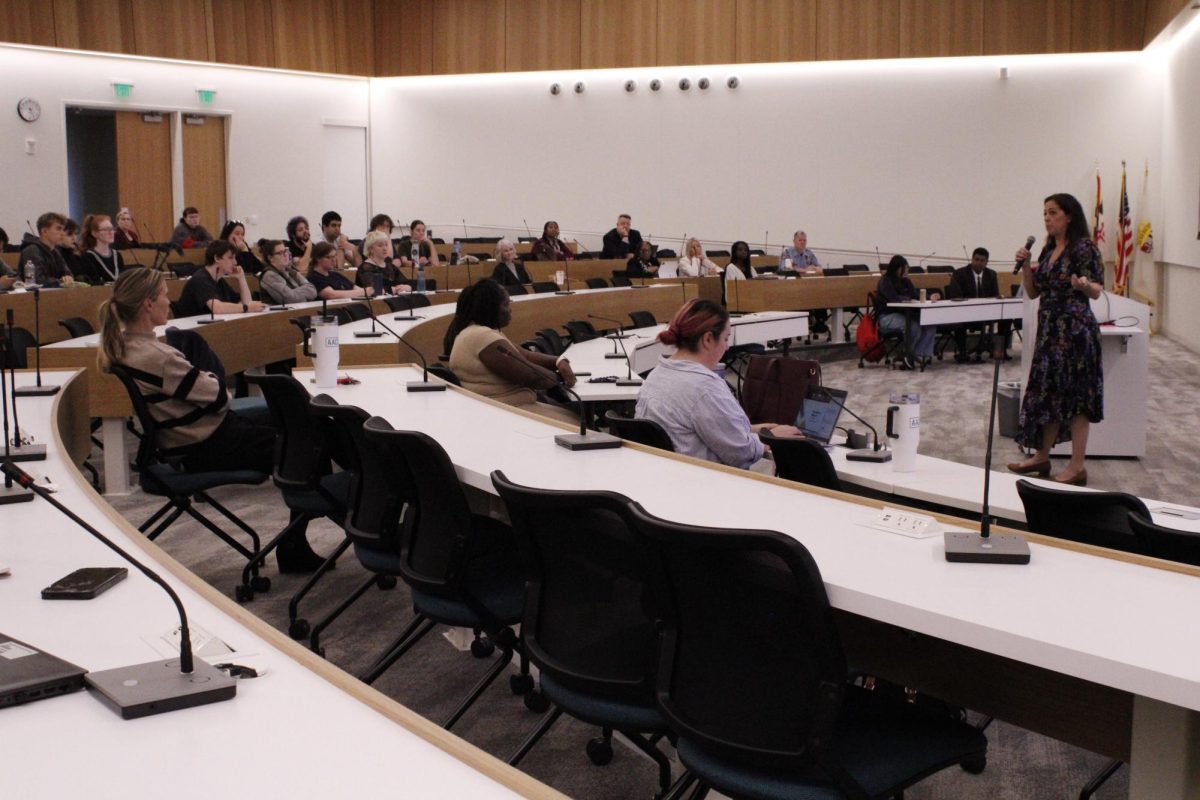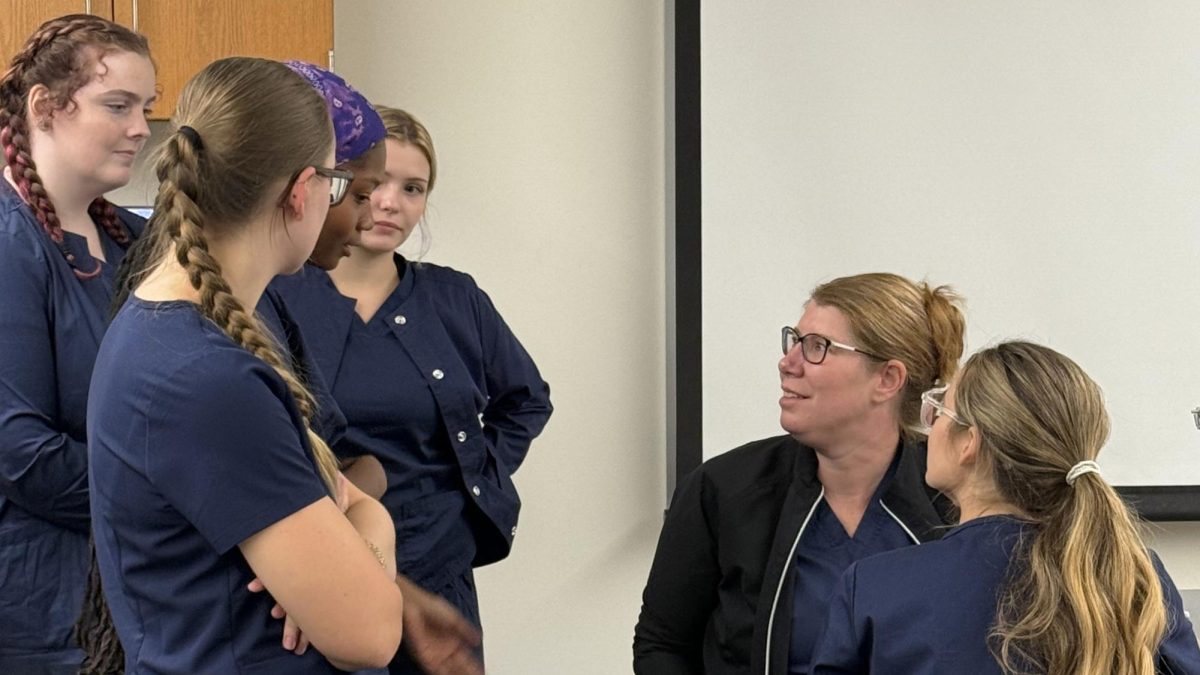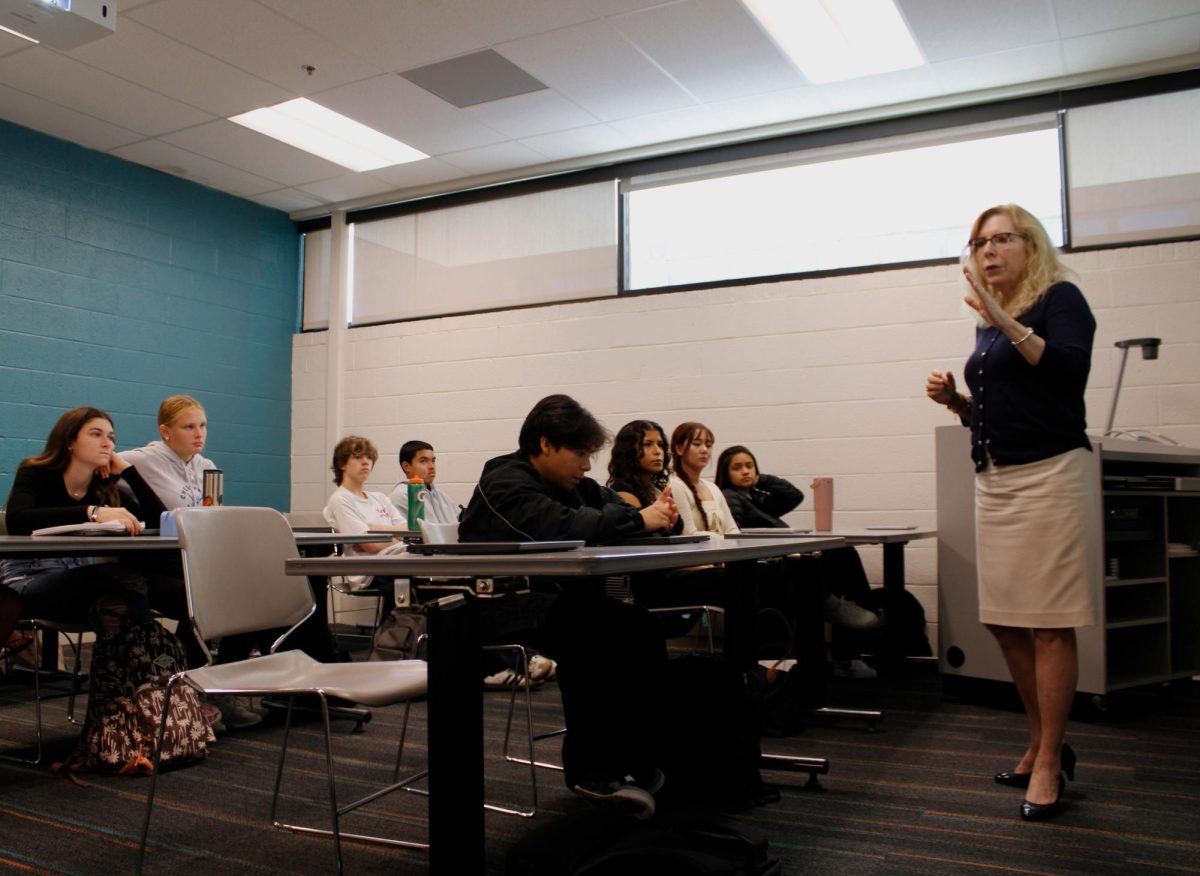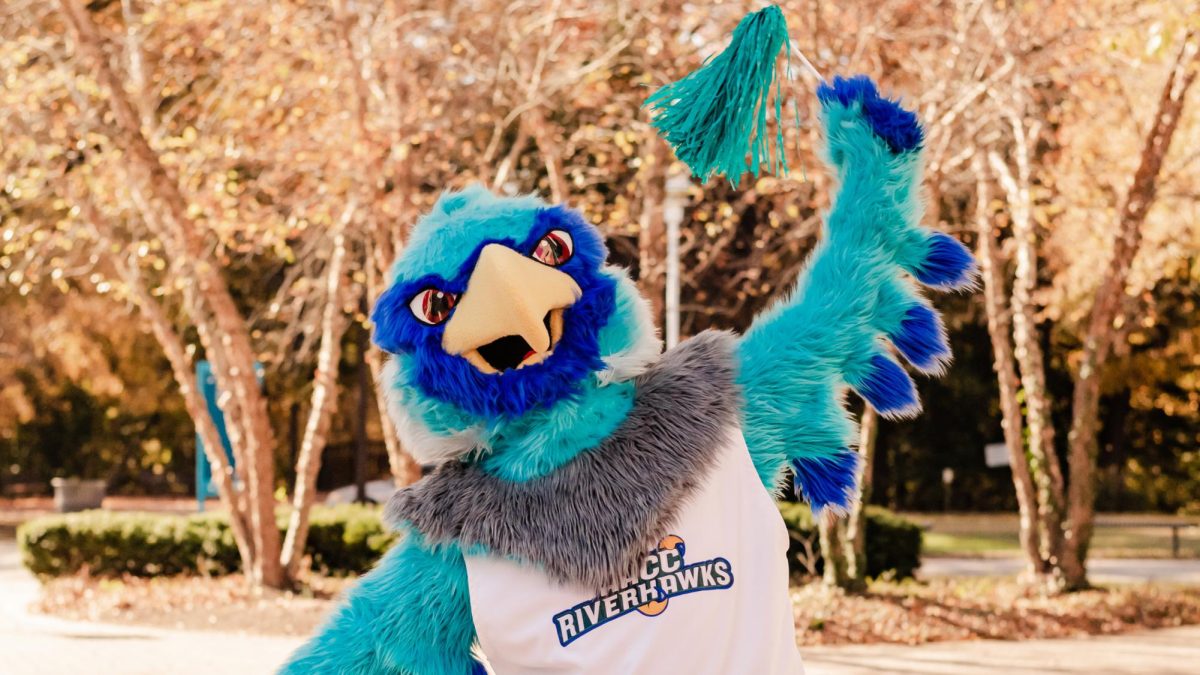Have you ever noticed that you feel most proud of yourself when you achieve something that you worked really hard for?
Chipmunks feel the same way.
That’s what an AACC psychology professor found while studying the link between the food storage habits of chipmunks and the work ethic of humans.
As part of his master’s thesis and Ph.D. dissertation at University of Oklahoma around 2008, Jarred Jenkins found that chipmunks have a preference for food they have worked for.
“My dissertation was focused on the work ethic,” Jenkins said. “In humans, we see this all the time, that we tend to prefer resources that we’ve had to work harder for.”
Jenkins continued: “If you get an A in a really hard class, and you get an A in a really easy class, which A do you prefer? And most will say the A in the hard class if they have a preference, because they’ve worked harder for it.”
Jenkins studied two types of chipmunks: the Least Chipmunk, which lives in the Western United States, and the Eastern Chipmunk, which is native to Maryland.
“We’d actually collect up in Michigan, in the Upper Peninsula,” Jenkins said. “And then we would take them down to our lab in Oklahoma, where we do a variety of behavioral tests to, kind of, understand their behavior, their choices between food patches, how they store their food and how they remember where that food is for later use.”
His master’s thesis focused on the Least Chipmunk’s method of food storage.
“These animals scatter cash, which means they take their food resources they collect and they space them throughout their environment,” Jenkins said.
Before his chipmunk research, Jenkins worked with lab rats as an undergraduate at Lebanon Valley College in Pennsylvania.
Jenkins said he looked for a graduate program that would allow him to continue to study animal behavior.
“What was important for me and choosing my program was less about the species, and moreso about studying the animals from a psychological and a biological perspective,” Jenkins said.
Jenkins said he enjoyed working with the animals in a natural setting, so the researchers tried to mimic the chipmunks’ natural environment in their lab.
“We had our chipmunks kind of housed in kind of semi-naturalistic enclosures; we gave them tasks that were semi-naturalistic,” Jenkins said. “It wasn’t a perfect reflection of their life in the wild, but it was something that mimicked life in the wild, versus where we do a lot of stuff in psychology with rats and mazes, right?”
Jenkins said a common misconception about psychology is that it is the study of human behavior only.
“That’s a false assumption,” Jenkins said. “Psychology is the study of mind and behavior. And so there are psychologists who study cockroaches, there are psychologists who study birds, or psychologists who have studied chimps and great apes.”
Ella Westerfeld, a first-year psychology student in one of Jenkins’ classes, said she hadn’t realized that studying animals was a part of psychology until taking his course.
And Mason Swank, a first-year transfer student, said he appreciates Jenkins’ experience in the field.
“It’s easier for them to have the students connected with real-life experiences because they can give examples from themselves,” Swank said.









